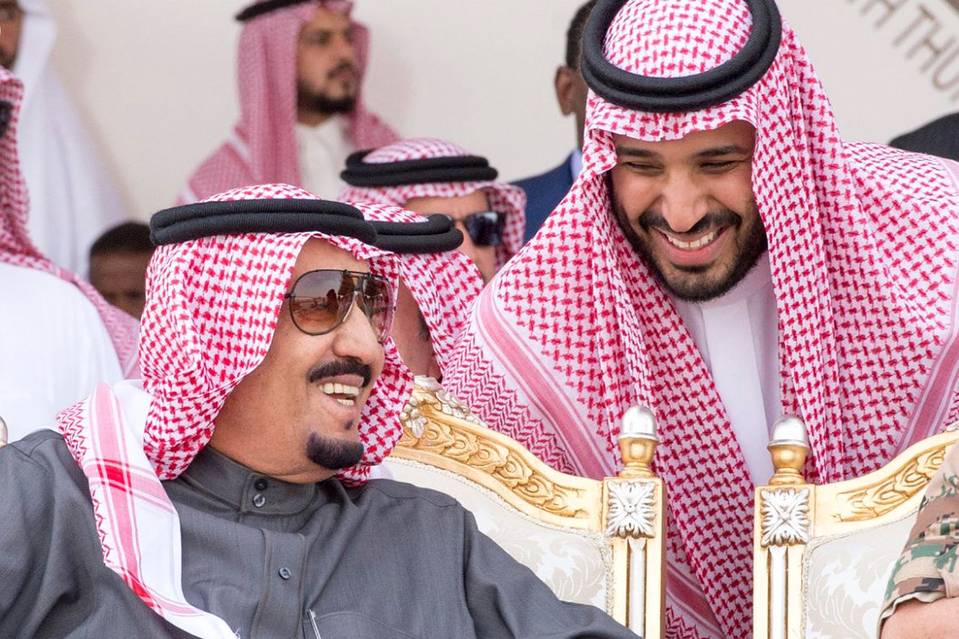Alwaght- Human Rights Watch (HRW) denounced Saudi Arabia's new counterterrorism law as "ludicrous", as the law criminalizes criticizing the king or crown prince.
The law, introduced earlier this month, includes penalties of up to 10 years in prison for portraying the king or crown prince, directly or indirectly, “in a manner that brings religion or justice into disrepute,” and criminalizes a wide range of peaceful acts that bear no relation to terrorism, the prominent human rights group said in statement on Tuesday.
The new so-called counterterrorism law that replaces a widely criticized counterterrorism law promulgated in 2014 also includes death penalty for other acts of "terrorism", according to Saudi Gazette and other local news media.
"Saudi authorities are already methodically silencing and locking away peaceful critics on spurious charges," Sarah Leah Whitson, HRW's Middle East director said.
"Instead of improving abusive legislation, Saudi authorities are doubling down with the ludicrous proposition that criticism of the crown prince is an act of terrorism."
According to HRW, the new law expands the definition of terrorism to conducts such as “disturbing public order,” “shaking the security of the community and the stability of the State,” “exposing its national unity to danger,” and “suspending the basic laws of governance,” all of which are vague and have been used by Saudi authorities to punish peaceful dissidents and activists.
Prominent human rights activists Abdullah al-Hamid and Mohammed al-Qahtani are serving 11-year and 10-year sentences respectively, based on charges that contain similar language. Human rights activist Essam Koshak is currently on trial on similar charges.
The United Nations special rapporteur on human rights and counterterrorism had concluded in May, following a visit to Saudi Arabia, that he was “concerned about the unacceptably broad definition of terrorism and the use of Saudi Arabia’s 2014 counter-terrorism law and other national security provisions against human rights defenders, writers, bloggers, journalists and other peaceful critics.”
Saudi regime, using the vague definition of terrorism, executed in January 2016 the leader of country's Shiite minority Nimr Baqir al-Nimr, who called for elections in the absolute monarchy.
The execution of outspoken Shiite cleric was condemned by many governments and human rights organizations.
Almost in tandem, Saudi Arabia has reached a turning point in how it views its strategic role in the West Asia since Mohammed bin Salman was named crown prince in June.
He is also the country's defense minister.
His latest move, the arrest in a corruption crackdown of more than 30 senior figures, including members of the extended royal family - has been interpreted by critics as a political purge to defuse public disquiet over corruption at the highest levels, but also to neutralize potential rivals.
But Mohammed bin Salman's efforts to assert the kingdom's regional primacy through an assertive foreign policy have backfired in Yemen and Qatar, and are opening a new front in Saudi Arabia's regional rivalry with Iran.
“Mohammad bin Salman claims to be a reformist but locking away peaceful critics as terrorists is the same old despotism we’ve often seen from Saudi rulers,” HRW's Middle East director.
Given the new law’s vague definition of terrorism, which could allow authorities to continue to target peaceful criticism, other provisions of the law raise alarms, Human Rights Watch said. Article 34, for example, provides a prison term of three to eight years for anyone who supports, promotes, sympathizes with, or incites terrorism. Article 35 stipulates a sentence of no less than 15 years for anyone who “misuse[s] their status in any way either academic or social status or media influence to promote terrorism.”
The new law undermines due process and fair trial rights, Human Rights Watch said. Instead of amending the law to strengthen the role of the judiciary, it grants the public prosecution and the Presidency of the State Security the legal authority to arrest and detain people, monitor their communications and financial data, and search their properties and seize assets without judicial oversight. The Presidency of State Security can ban a suspect from travel without notifying them, and the law gives police officers and military personnel authorization to use force “according to regulations laid down in the law.” No additional regulations on use of force are mentioned in the text.
Article 21 restricts the suspect’s right to a lawyer during interrogation, and article 27 gives the SCC the authority to hear witnesses and experts without the defendant or their lawyer present. It requires the court only to inform them of the content of the testimony, greatly hampering their right to challenge this evidence.



























